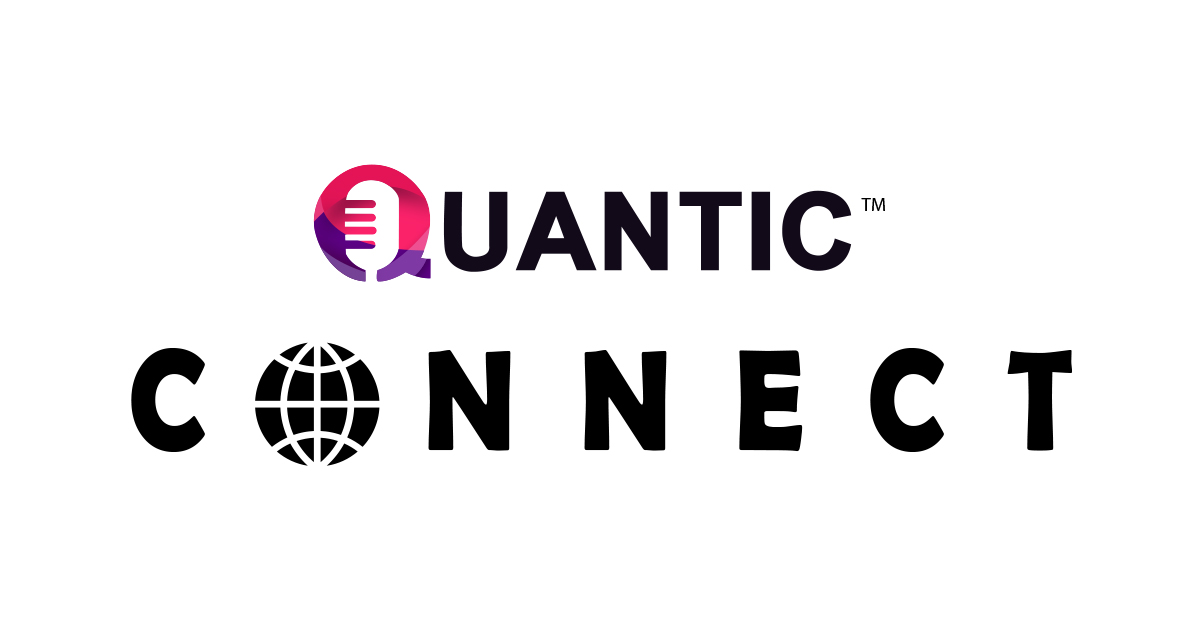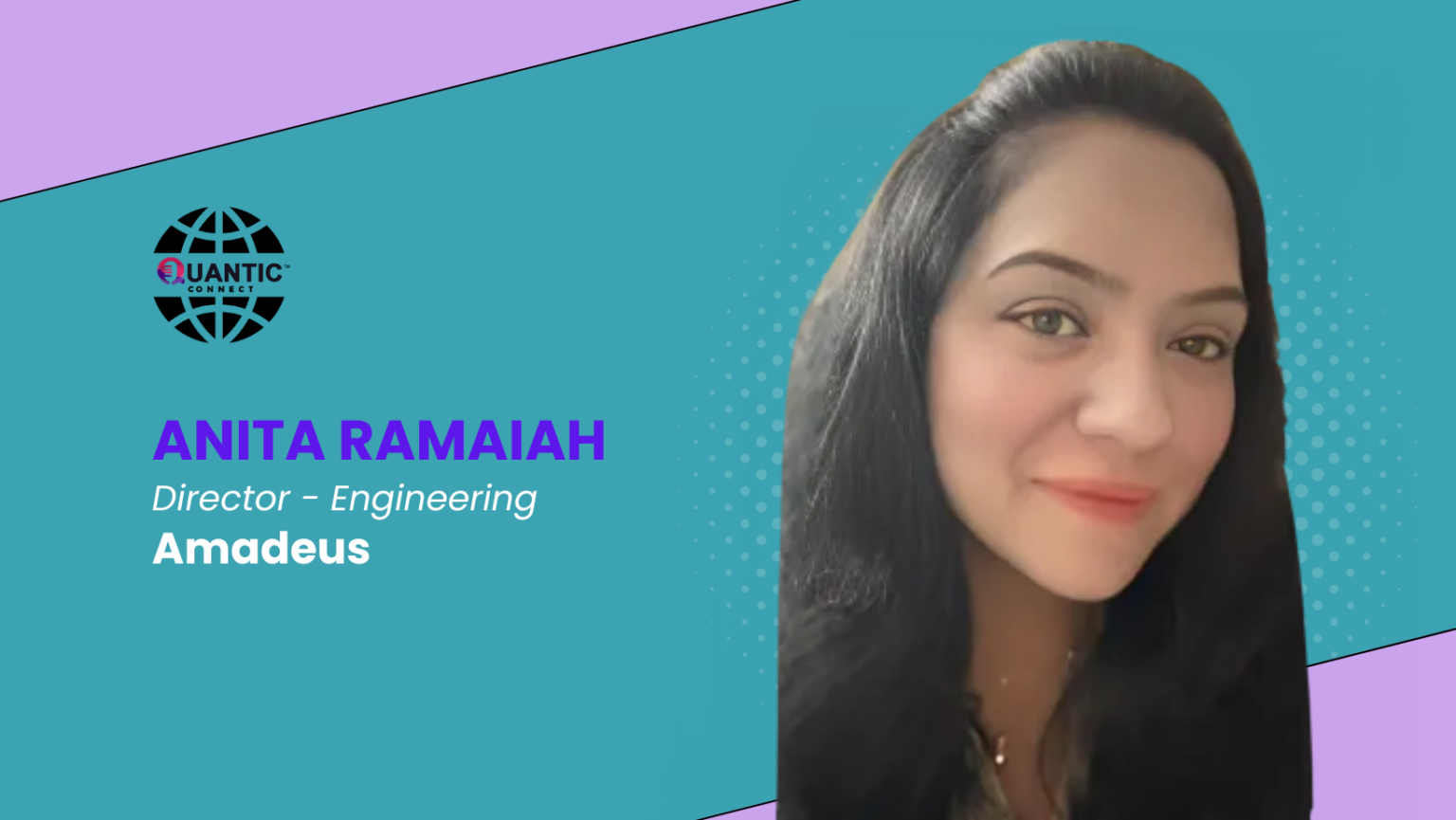Mumbai, 30th January, 2025: In today’s rapidly evolving professional landscape, leadership is a dynamic and multi-faceted journey, shaped by various influences, experiences, and decisions that define not only the results achieved but also the way challenges, relationships, and growth are approached. This article explores key insights that have significantly shaped leadership philosophies, including the influential books, reflections on career decisions, and the evolution of success.
Join Ms. Anita Ramaiah, Director – Engineering, at Amadeus India in an engaging and interesting conversation with Mr. Marquis Fernandes, who leads the India Business at Quantic India as they explore principles that guide effective leadership, how they continue to shape professional journeys, and the entrepreneurial aspirations that drive forward-thinking leaders.
Can you recommend a book that has significantly influenced your approach to leadership, and what key insights from that book have shaped your strategies or mind-set?
One book that has profoundly influenced my approach to leadership is The 7 Habits of Highly Effective People by Stephen R. Covey. I discovered this book early in my career, and its principles have been a cornerstone of my personal and professional growth.
Each of the seven habits offers timeless insights that have shaped my mindset and strategies:
- Be Proactive: Encourages taking initiative and creating new opportunities.
- Begin with the End in Mind: Highlights the importance of having a clear, end-to-end perspective to guide decisions.
- Put First Things First: Stresses prioritization and focusing on what truly matters.
- Think Win-Win: Inspires the development of strong relationships through trust, transparency, ownership, and a willingness to take risks.
- Seek First to Understand, Then to Be Understood: Emphasizes empathy, active listening, and truly understanding others’ perspectives.
- Synergize: Advocates for collaboration and leveraging synergistic opportunities, fostering greater collective success.
- Sharpen the Saw: Reinforces the importance of continuous learning, growth, and self-renewal.
This book has played a crucial role in shaping me as an individual, helping me evolve a strategic thought process and a leadership style rooted in empathy, collaboration, and growth.
If you had the chance to start your career all over again, what would you do differently, and why?
If I had the chance to restart my career, one thing I would do differently is prioritize data over domain specialization. From a young age, I’ve always been passionate about programming, numbers, and logical, strategic thinking. Having worked extensively in the telecom and now airline industries, I’ve realized that the fundamental philosophy across domains remains consistent: receiving input, processing it, and delivering the desired output.
With the industry increasingly moving toward data-driven approaches, I recognize the immense value of focusing on data as a universal asset, transcending specific domains. Shifting my focus earlier toward data-centric roles would have allowed me to stay ahead of industry trends and further refine my analytical and strategic expertise.
How has your definition of success evolved over the years, and what influenced that change?
Over the years, my definition of success has evolved to align closely with passion and personal growth. I’ve always believed in pursuing work that I truly love and giving it my absolute best. Passion fuels the drive to explore, learn, and push beyond limitations.
Through self-reflection, I’ve realized that stepping outside my comfort zone and embracing risks has been pivotal in my journey. These experiences have not only helped me uncover my potential but have also been instrumental in driving growth and achieving success in my career.
If you were to start your own business, what kind of venture would it be, and what problem would it solve?
If I were to start my own business, it would revolve around my passion for handcrafted items, such as handmade paintings, embroidery, and more recently, my daughter’s newfound love for making candles. Through my research, I’ve observed that handcrafted goods often don’t receive the recognition or value they deserve compared to machine-made alternatives.
Moreover, the artisans who invest significant time and effort in creating these products often face challenges, particularly due to intermediaries reducing their returns. These handcrafted items are highly valued in international markets, yet the creators seldom reap the full benefits of their work.
My venture would focus on building a platform that connects artisans directly with buyers, eliminating unnecessary middlemen and empowering these creators to showcase their talent and earn fair returns. This platform would simplify the business process for artisans while promoting the beauty and uniqueness of handcrafted products globally.
If you weren’t a Engineering Leader, what other career path do you think you would have pursued and why?
If I weren’t an Engineering Leader, I believe I would have pursued a career in strategic business. I’ve consistently received feedback that my strategic thinking is highly commendable, and it’s an area I deeply enjoy.
Given my interest in analyzing opportunities and taking calculated risks, I could see myself thriving as a business investor. In fact, this idea still resonates with me and remains a potential path I may explore in the future.
To know more about us / publish your article, reach us at
www.quanticindia.com
marquis@quanticindia.com.



